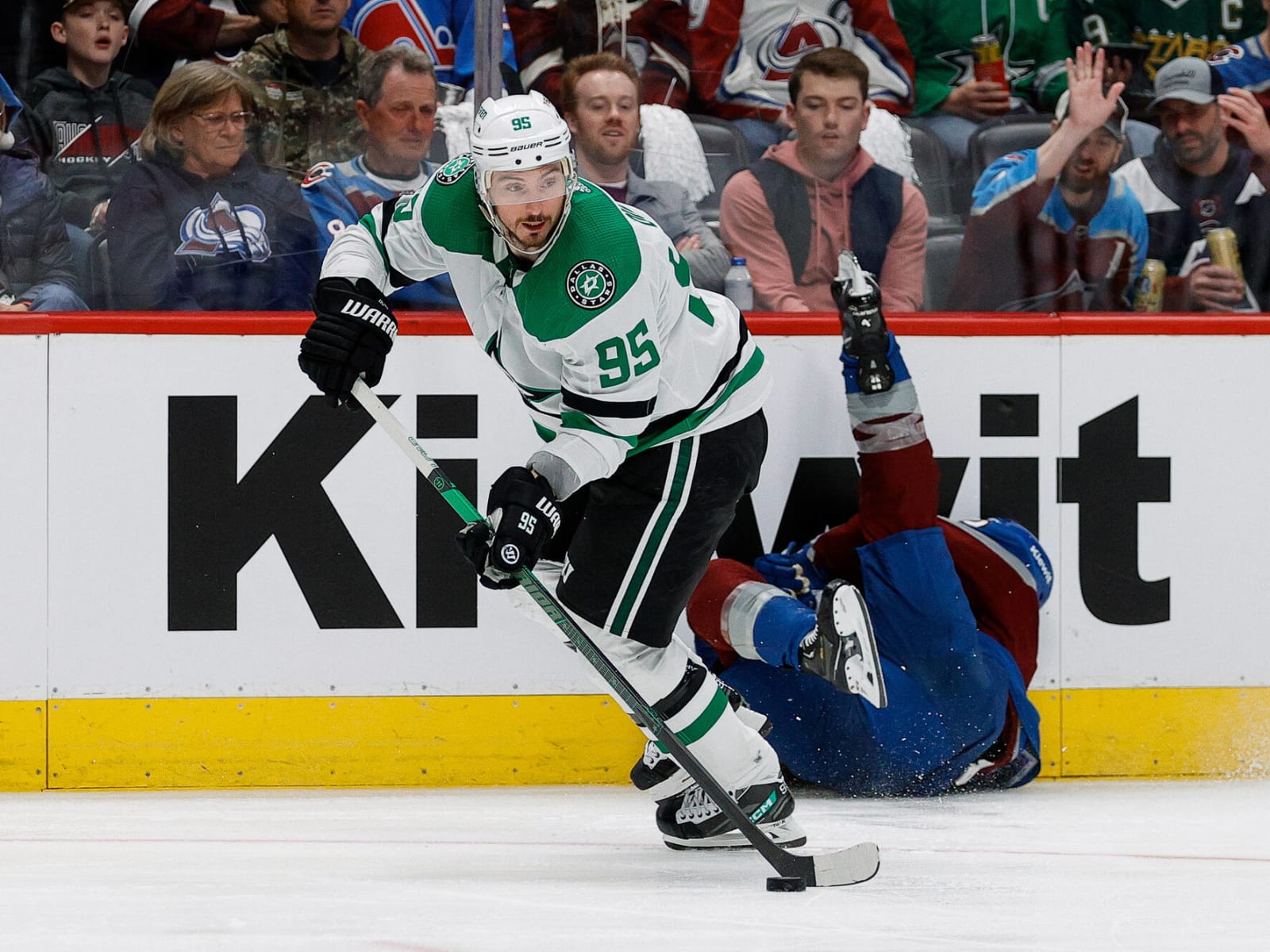It’s been just under a year since the Nashville Predators made the decision to buy out Matt Duchene’s contract — a move that continues to remain hotly debated.
As Duchene prepares for a trip to the Western Conference Final after scoring the series-winning goal against the Colorado Avalanche (another of his former teams), the Predators prepare for another long summer after their first-round playoff loss to the Vancouver Canucks.
It was the Predators fifth first-round exit in six years counting the COVID play-in loss to the Arizona Coyotes. Duchene, meanwhile, moves on to the Western Conference Final — a landmark the Predators have only reached once in their 25-year history.
While that alone would be difficult for the Predators to swallow, it becomes all the more difficult considering Nashville had to pay Duchene $2.56 million this year, and it will have to pay him a combined $12.11M over the next two seasons.
To put this into perspective, the team paid Duchene roughly $102,400 for each regular-season goal he notched with the Stars this year (that doesn’t take into account his six points so far in the playoffs).
Duchene’s Predators tenure wasn’t all bad
Understandably, Predators fans are put out by how the seemingly perfect country-music marriage between the team and Duchene ended.
The 33-year-old was supposed to be the franchise center their team desperately needed. During his time in Nashville, Duchene put up 197 regular-season points (84 of which were goals), third only behind Roman Josi and Filip Forsberg.
His individual high-danger chances for was second-best on the team during his four seasons, and he was also second in most rush attempts, behind only Forsberg.
While Duchene was never considered a defensive star, he did average a Corsi for percentage of 52.6, meaning he had more of a positive impact on the ice offensively than he was a liability defensively.
For perspective, Josi, a perennial Norris Trophy finalist, had an average CF percentage of 51.93 over the same time period, and Forsberg averaged a CF percentage of 52.
It’s easy for the Predators front office to have a little regret about buying out Duchene’s contract.
A case could be made that Duchene may have been a massive help in the Predators overcoming the Vancouver Canucks in the first round, especially when goals and high-danger chances were at a premium.
However, I believe the Duchene buyout had less to do with the production of the player and more to do with the direction of the team.
A downward trend
There is no doubt that Duchene is a talented player. He has consistently produced in a top-six role since he entered the league in 2009. In addition (until this season), Duchene held the Predators’ single-season goal record.
The trend line, however, wasn’t going the right way, both for the team and for the player.
Take for example his previously mentioned CF percentage. Duchene’s CF number declined every season he was in Nashville. While his PDO numbers, which measure shooting percentage plus save percentage, remained high, his point totals significantly decreased in 2022, as did the team’s performance as a whole.
Additionally, Duchene didn’t cement himself as Nashville’s franchise-saving center. That may not have been a fair expectation of him, but it was the reason the Predators had been pursuing him for years before he ended up in Nashville.
A decline can be seen not only in Duchene’s production, but also in the amount of time he played center, which dipped significantly from 2019 to the end of the 2022 season. In part, that’s because he was more effective playing on the wing while Ryan Johansen remained Nashville’s top center.
But it wasn’t just the player that was declining, the team was also stuck in neutral.
The Predators didn’t win a single playoff round while Duchene was with the team, and the franchise missed the postseason for the first time in nine years in 2022.
Not to litigate the past, but Duchene hasn’t exactly shined in situations where his team was in decline. Just ask the Avalanche or Ottawa Senators.
With Barry Trotz stepping into his new role as general manager, he made it a point to change the locker-room culture, and Duchene, much like Johansen, seemingly didn’t fit into the long-term plans of the Predators’ new boss.
Duchene’s modified no-movement clause was also about to kick in, making it harder to move him if things went south during a presumed rebuild.
Don’t fall for recency bias
Would having Duchene (and his 25 goals and 65 points) have helped the Predators win a playoff round this year? Maybe. But they most likely wouldn’t have gotten by the Edmonton Oilers or Dallas Stars.
One could argue the absence of former defensive stalwart Mattias Ekholm had more of an impact on the team’s performance than Duchene against Vancouver.
Nashville overachieved this season, and while Trotz’s thoughts were unknown before the season began, the playoffs seemed like a distant hope in the early months of the season.
As was evident in the Canucks series, the Predators have more work to do to revamp their blue line and forward groups to be a real force in the Western Conference.
Trotz has a long summer ahead of him to figure out what direction he wants to take the team. I don’t envy his decision between starting a full rebuild or fine-tuning his roster through trades or free agency to contend more quickly.
Had the Predators had kept Duchene, they likely wouldn’t have been able to afford both Ryan O’Reilly and Gustav Nyquist last offseason. Both players are a big reason why Nashville enjoyed a surprise playoff berth this season and helped spark Forsberg to his best season.
While having Duchene’s production would have been nice, fans should trust the process, and Trotz’s judgment on the matter, rather than fall victim to recency bias. A short-memory is needed when trying to fix problems.
Wondering “what if?” is how franchise-damaging mistakes are made.












